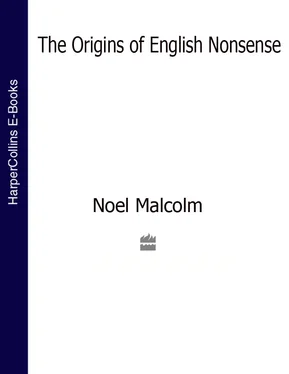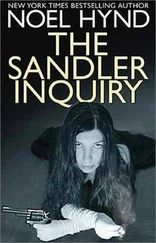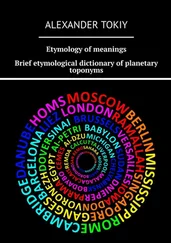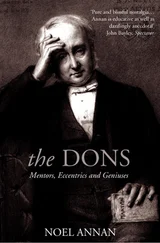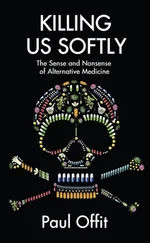For the first specimen of full-blown English literary nonsense poetry in the seventeenth century, we must turn to John Hoskyns’s contribution to the mock-praise of Coryate. An explanatory note at the head of these lines describes them as ‘Cabalisticall Verses, which by transposition of words, syllables, and letters make excellent sense, otherwise none’. Without further ado, we are launched on literary nonsense at high tide:
Even as the waves of brainlesse butter’d fish,
With bugle horne writ in the Hebrew tongue,
Fuming up flounders like a chafing-dish,
That looks asquint upon a Three-mans song … 26
That explanatory note was, needless to say, only mock-explanatory. Contributing as he was to a collection of poems written for show (which includes pattern-poems and acrostic verses), Hoskyns pretended that he was performing an even more elaborate formal exercise. Although there was little general knowledge of cabbalistic matters in England in this period (the ‘briefe Index, explayning most of the hardest words’ appended to the 1611 edition of Sylvester’s translation of du Bartas explicates ‘Cabalistick’ as ‘mysticall Traditions among the Jewes Rabbins’), Hoskyns’s learned friends would probably have been aware of the interest shown in the Jewish cabbalistic tradition by Renaissance scholars such as Reuchlin and Pico della Mirandola. 27They may have had some knowledge of the techniques of verbal and numerical analysis applied by cabbalists to the Hebrew scriptures, of which the most complex method, ‘themurah’ or ‘transposition’, involved a combination of letter-substitution and anagrammatic interchanges of the resultant letters. 28
A well-known anti-astrological work published by the Earl of Northampton in 1583 had included a section on the ‘Arte of Cabolistes’ which observed: ‘Another kinde of mysterie they had lykewise, which consisted eyther in resolving wordes of one sentence, and letters of one word that were united, or uniting letters of one word, or wordes of one sentence that were dissevered.’ ‘But’, the Earl continued, ‘I declaime against the follies of the foolishe Jewes of this tyme, and some other giddy cock-braynes of our own, which by the resolution or transporting of letters, syllables and sentences, are not ashamed to professe the finding out of secrete destinies.’ 29That last sentence is quite closely echoed in Hoskyns’s own phrasing (‘which by transposition of words, syllables, and letters’); and this fact makes it possible to reconstruct the precise mental process by which Hoskyns was led to compose his seminal nonsense verses. The most likely explanation is that Hoskyns, prompted by one of the incidents described by Coryate and depicted in his title-page (an encounter between Coryate and a Rabbi in the Venetian Ghetto, when the parson’s son from Odcombe immediately tried to convert the Rabbi to Christianity), had leafed through his books in search of an idea for a witty pseudo-Rabbinical conceit, and had stumbled on this passage in the Earl of Northampton’s account. Perhaps it was the reference to ‘giddy cock-braynes’ which alerted him to the possibility of a comic application to Coryate.
Those twelve lines of high nonsense were, apparently, the only such verses Hoskyns ever wrote. The genre of nonsense poetry might now have died in infancy, were it not for the intervention of another minor poet, who adopted it and made it his own. He was John Taylor, the ‘Water-poet’, and once again it was Tom Coryate who provided the catalyst.
Taylor was the son of a Gloucestershire barber-surgeon; born in 1580, he was briefly educated at Gloucester Grammar School before being packed off to London and apprenticed to a waterman (the Thames equivalent of a gondolier). 30During his apprentice years he also served several times in the Navy: the Thames watermen were frequently used as a kind of naval reserve. In 1598 Taylor took up the waterman’s trade. Resident in Southwark, the play-house and low-life district on the south bank of the river, he formed many friendships with actors and writers. In 1612 he joined the ranks of the latter when he published the first of what was to become a torrent of minor literary productions, many of them in humorous quasi-doggerel verse. Although the title of this pamphlet was probably designed to cash in on the fame of Coryate’s book ( The Sculler, rowing from Tiber to Thames: with his Boat laden with a Hotch-potch, or Gallimawfrey of Sonnets, Satyres, and Epigrams ), it was not primarily directed against Coryate; Taylor was not pretending to have travelled to Italy himself, the reference to the ‘Tiber’ merely alluding to the fact that the first group of epigrams consisted of fierce attacks on the Papacy and the Roman Catholic clergy. But one of the poems in this work was entitled ‘To Tom Coriat’, and it addressed him in tones of genial disrespect:
What matters for the place I first came from
I am no Duncecomb, Coxecomb, Odcomb Tom
Nor am I like a wool-pack, crammed with Greek,
Venus in Venice minded to goe seeke … 31
This seems to have cut Coryate to the quick: ‘it was one thing for the wits and gallants to flatter him with their notice by laughing at his antics and quite another to be publicly called a dunce by an upstart waterman.’ 32Although he did not stoop to reply in print, his reaction was reported by Taylor in a later work:
He frets, he fumes, he rages and exclaimes,
And vowes to rouze me from the River Thames. 33
Taylor had a talent for self-publicizing, and would not allow the opportunity to slip. He quickly turned out another pamphlet, entitled Laugh, and be Fat: or, a Commentary upon the Odcombyan Banket , in which he supplied a humorous running commentary on the prefatory verses to Coryate’s Crudities. His reaction to Sanford’s poem was one of bemusement rather than emulation:
Thou fatall impe to Glastonburie Abbey,
The Prophecie includes thou art no baby … 34
To Peacham’s poem in ‘the Utopian Tongue’ he responded in kind, filling his own version of gibberish with semi-submerged fragments of abuse (poem 5). And on reaching Hoskyns’s poem he paused only to indulge in a little trans-linguistic pun (‘Cabalistical, or Horse verse’) before launching himself into headlong imitation:
Mount Malvorn swimming on a big-limb’d gnat,
And Titan tilting with a flaming Swanne … 35
This was Taylor’s induction into the art of nonsense poetry, an art of which he was to become, in his own time if not in ours, the acknowledged master.
In 1613 Taylor renewed his ridicule of Coryate with another poetical pamphlet, Odcombs Complaint. Coryate had set out in October 1612 on his second great adventure, a journey to India, and Taylor’s new work was a set of spoof elegies, based on the supposition that Coryate had drowned on his way to Istanbul. These included an ‘Epitaph in the Barmooda tongue, which must be pronounced with the accent of the grunting of a hogge’ (poem 6 – this resembles a later gibberish poem by Taylor ‘in the Barbarian tongue’, ridiculing tobacco-taking: poem 9), another in the ‘Utopian tongue’ (poem 7), and finally an exuberant sextet of sonnets in the high Hoskyns nonsense style (poem 8). Thomas Coryate did eventually die on his travels, succumbing to a ‘flux’ at Surat in December 1617; and within a few years Taylor had emancipated his own nonsense writing from the narrow confines of his feud with Coryate. At the end of a humorous prose pamphlet on fasting and feasting published in 1620, Jack a Lent , Taylor added twenty-three lines of nonsense verse, entitled ‘Certaine Blanke Verses written of purpose to no purpose’ (poem 10). The genre was now a firmly established part of his repertoire.
Читать дальше
